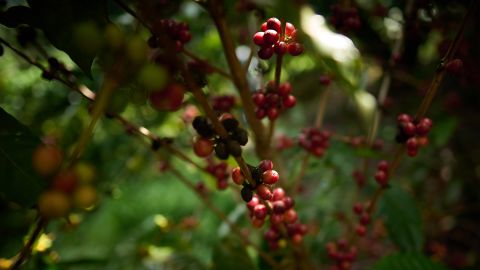Coffee futures are crashing. But that might not mean too much for the price of your cup of coffee.
In August, Arabica coffee futures were trading at $2.43 per pound. By Wednesday, the price had tumbled to $1.59, a roughly 35% decline.
There are a few reasons for the steady drop in prices, explained Carlos Mera, head of the agri commodities markets team at Rabobank.
For one thing, weather in Brazil is better than it has been the past couple of years. Rainfall this fall suggests that the country will have a good coffee crop, securing supply.
“September is usually the start of the wet season,” Mera explained. “The start of this wet season was actually very good.”

Then there’s the strength of the US dollar.
“When the dollar goes up, everything measured in dollars, like international coffee prices, tend to go down,” Mera said. Farmers outside of the US are incentivized to sell their products because they’ll earn a price in US dollars which translates to a higher amount of currency at home.
“Farmer are keener to sell any stocks that they may be holding,” Mera said.
The situation marks a sharp reversal from what was happening last year.
In November 2021, coffee futures climbed to the highest level since January 2012. That was thanks to severe drought and unusual frost conditions in Brazil, which caused turmoil in the market.
And short supplies of shipping containers put roasters on edge, inspiring them to stock up as much as possible.
Now, “there are some delays, but nothing in comparison to what it was before,” Mera said.
Coffee has been getting more expensive for consumers, as well.
In the year through October, not adjusted for seasonal swings, coffee prices jumped 14.8% in the grocery store, according to data from the Bureau of Labor Statistics.
Starbucks (SBUX) said in November that it has raised prices this year by about 6%.
But the improved conditions won’t necessarily mean a big decline in coffee prices for consumers, Mera noted. That’s because while coffee prices are falling, other costs, like labor and distribution, are still high for producers.
“I think if we see dropping prices, [they] are going to be modest,” he said.
Plus, big coffee companies like Starbucks secure long contracts, which help protect them from short-term volatility.
from "price" - Google News https://ift.tt/N6bkU92
via IFTTT

No comments:
Post a Comment